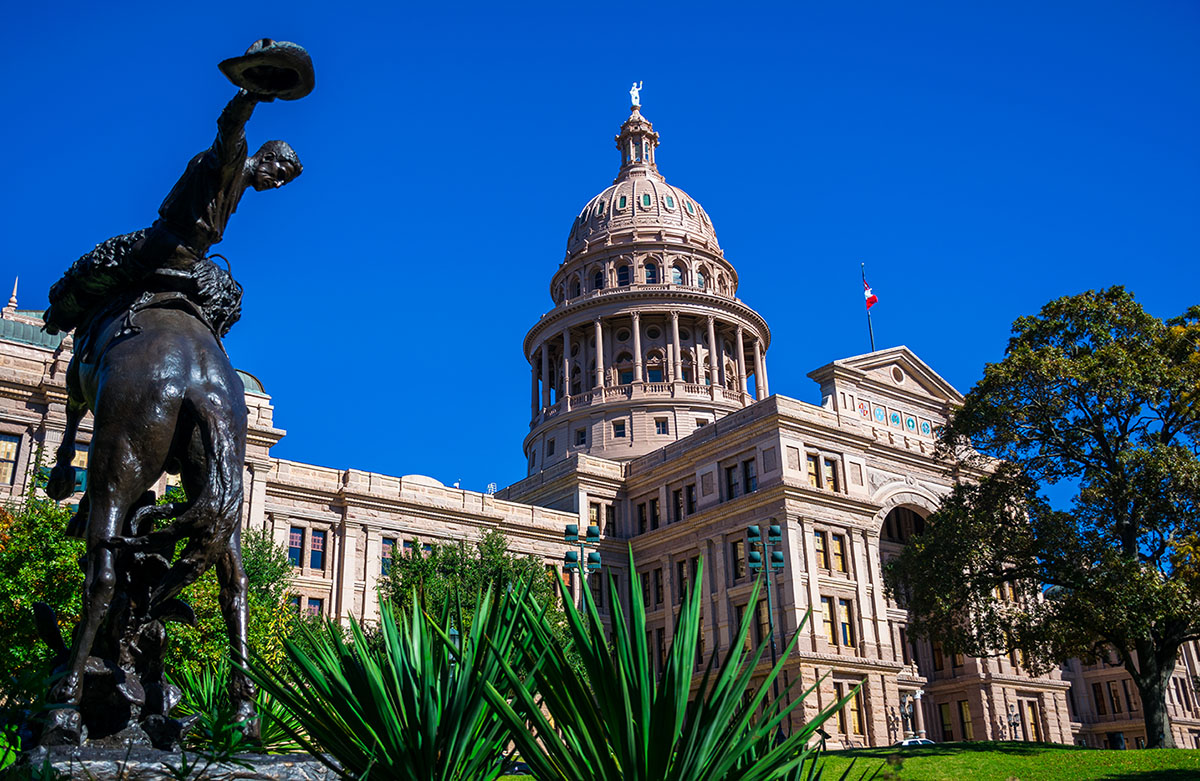Voting on Eight Amendments to the Texas Constitution

Texans are scheduled to vote on November 2, 2021 on whether to pass or reject 8 proposed amendments to the Texas Constitution.
The Texas Constitution was originally drafted in 1876 and has been amended 507 times over the years. During this past 2021 Legislative session, 218 constitutional amendments were proposed of which 8 obtained the necessary support to be placed on the November 2nd ballot for public voting. To be placed on the ballot, each proposed amendment was required to secure the approval of two-thirds of both the Texas House and Texas Senate. To become amendments to the Texas Constitution, the proposed amendments must obtain a majority of the public vote. Earlier this year, the 8 proposed amendments secured the necessary approval from both chambers of the Texas Legislature. The general public’s vote, after many days of early voting, is scheduled for November 2.
Many of the amendments are non-controversial or impact a very limited number of people. Other amendments are directly related to restrictions which were in place during the initial waves of the COVID-19 pandemic.
The proposed amendments are as follows.
Proposition No.1 – Authorizes charitable organizations to conduct raffles at professional rodeo events sponsored by the Professional Rodeo Cowboys Association or Women’s Professional Rodeo Association. Votes approved a similar measure for professional sports teams in 2015, but rodeo was not corralled with the other sports. This amendment is required because raffles may be considered a prohibited form of gambling under the Texas Constitution.
Proposition No. 2 – Authorizes a county to issue bonds on infrastructure or transportation in unproductive, underdeveloped or blighted areas. The amendment is needed because the Texas Constitution expressly gives the Legislature the power to authorize a city of town to issue such bonds, but not counties.
Proposition No. 3 – Would prohibit the State or a political subdivision from prohibiting or limiting religious services of religious organizations. This is directly related to restrictions issued during the COVID-19 pandemic. The amendment would apply to services conducted in churches and by “religious organizations established to support and serve the propagation of a sincerely held religious belief.” If adopted, neither the State nor political subdivisions could issue restrictions on services, even if the restrictions are for public health and safety reasons.
Proposition No. 4 – Changes the qualifications to a be a judge in the State. The proposal would require that to be eligible to serve on the Texas Supreme Court and Court of Criminal Appeals, the person must be licensed as an attorney for at least 10 years, and a judge of a state or county court for at least 10-years. To be a district court judge the attorney must be licensed for 8 years. This is an increase of the current constitutional requirement of being licensed for at least 6 years to be a judge on the Texas supreme Court and Court of Criminal Appeals and 4 years to be a trial or appellate judge.
Proposition No. 5 – Would allow the State Judicial Commission on Judicial Conduct to investigate complaints and take action against a candidate for judicial office. Currently, the Commission only has authority to take actions against persons who actually hold judicial office.
Proposition No. 6 – Would establish a right for residents of certain facilities to designate an essential caregiver for in-person visitation. This is another COVID-19 related amendment, aimed at nursing homes and assisted living facilities. It would prohibit those facilities from restricting a person designated as an essential care-giver from visiting the resident in-person.
Proposition No. 7 – Would allow a surviving spouse who is disabled to receive a limitation on certain residential property taxes if the surviving spouse is at least 55 years of age at the time the spouse died. Currently, a person must be at least 65 years of age to be entitled to the reduction of property taxes.
Proposition No. 8 – Expands the exemption for the reduction of ad valorem taxes on the homestead of a surviving spouse of a member of the military who is killed in the line of duty. The current exemption only applies to spouses killed in combat. This proposition would allow for the exemption to spouses killed during their military service and include non-combat related deaths.
If your company requires any legal assistance, our construction attorneys in our Austin and Dallas offices are available to answer any questions you may have.
Legal Disclaimers
This blog is made available by Gerstle Snelson, LLP for educational purposes and to provide general information about the law, only. Neither this document nor the information contained in it is intended to constitute legal advice on any specific matter or of a general nature. Use of the blog does not create an attorney-client relationship with Gerstle Snelson, LLP where one does not already exist with the firm. This blog should not be used a substitute for competent legal advice from a licensed attorney.
©Gerstle Snelson, LLP 2021. All rights reserved. Any authorized reprint or use of this material is prohibited. No part of this blog may be reproduced or transmitted in any form or by any means, electronic or mechanical, including photocopying, recording, or by any information storage or retrieval system without the express written permission of Gerstle Snelson, LLP.

